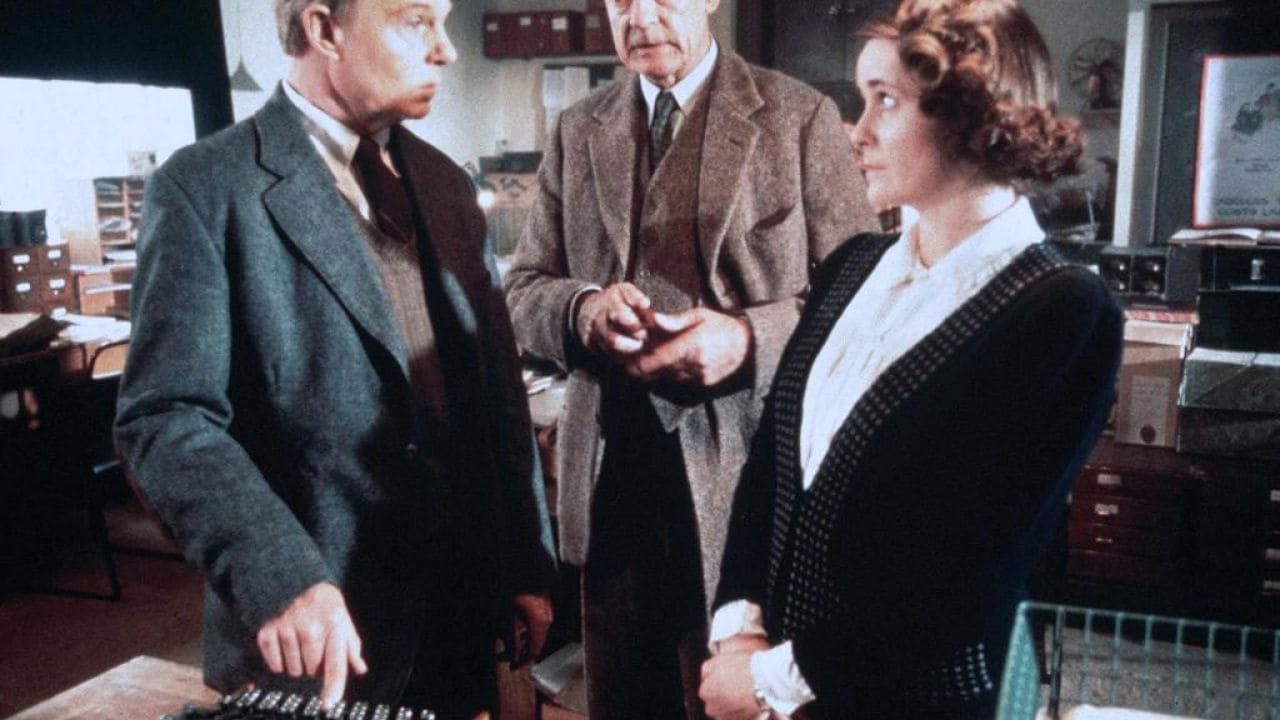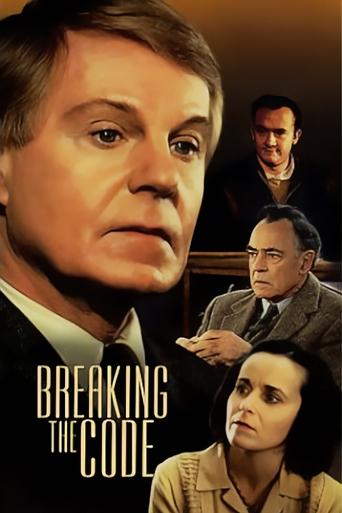KnotMissPriceless
Why so much hype?
Incannerax
What a waste of my time!!!
SeeQuant
Blending excellent reporting and strong storytelling, this is a disturbing film truly stranger than fiction
Roman Sampson
One of the most extraordinary films you will see this year. Take that as you want.
Robert J. Maxwell
It's a low budget BBC version of a talky play about Alan Turing, a brilliant mathematician and homosexual who is haunted by the authorities and commits suicide. I don't know how the Brits do it. Here we are, churning out expensive pep pills like "A Brilliant Mind."Before watching it, I was a little afraid I'd get bogged down in math, a subject in which I have the skills of an ox. But there's not much about math in it. And the last thing we see of Turing being introduced to the Enigma machine, which controls the operation of German U-boats in World War II, is his pausing over this compact but complex apparatus, fingering his chin, and saying, "Hmmmm." He tries to explain it later, when the extent of bureaucratic interest in the interaction between his sex life and his secret research is becoming clearer to him, but he fails. I got more out of his impassioned spiel to his boss at Bletchley Park, Richard Johnson, when Turing goes on about "consistency, completeness, and decidability." I think I understood it because it has to do not just with math but with science in general. I got Goedel's paradox because Turing explains it so simply, and I got "decidability" only if it relates in the way I hope it does to Karl Popper. If that's wrong, I got lost.That would be disappointing because I wanted MORE of an explanation of what his work was about. Instead, most of the film deals with the "enigma" of his sexual life. It's hard now to believe exactly how primitive our views of sexuality were sixty years ago, both in Britain and elsewhere. And Turing was no manipulator. Aside from his brainstorms and his spells of mutual masturbation, he was naive, blunt, and sloppy. Derek Jacobi has Turing and his mannerisms -- his whole personality -- pinned down perfectly. It's a masterful performance.The rest of the cast does equally well. Turing's mother is the Queen of Denial. Richard Johnson is Turing's sympathetic but pragmatic boss at Bletchley. I've always admired Richard Johnson's work, ever since "The Haunting" (1963), in which he plays a character with my title and profession. Of course he's aged quite a bit and it sent me rushing to the mirror to make sure I was as radiantly youthful as ever. He does a marvelous job here as a bisexual who has learned the ropes. And, if nothing else, he illustrates exactly how ugly men's clothing was in 1940. If Turing had been a different sort of guy, he'd have leaped to his feet at their introduction and shouted, "That SUIT is a CATASTROPHE!" It's a sad movie though. It leaves us wondering why we can't leave other people to their own devices as long as they hurt no one. At the time, the official argument was that you can't have "nancy boys" in positions where security might be compromised by blackmail. The solution, of course, is simple. Make it all perfectly public and legal in the first place.
Chris Jones (crljones)
Somewhat misleading if you want to learn about the history of super-secret Bletchley Park (BP) and breaking the German's "Enigma" codes during WWII. This film flits back and forth between pre and post-war scene's describing some of Alan Turings involvement at BP, but really focuses on the post WWII era leading to Turing's suicide. The "codes" being broken in this story are social.Turing's eccentricity and sexuality remain overlooked while he is vital to the war effort, but become the reason for mistrust, suspicion and even betrayal after-wards. Despite being a brilliant mathematician in a quest for beauty of mathematical truth in the Enigma codes, he is ultimately undone and outed by his own naivety.This film is also an homage to the unique style of Harold Pinter's intense personal dialogue's. Pinter himself appears as the mysterious yet vague intelligence "handler" who confronts Turing after he becomes a security concern. These scenes are Turing's "soliloquy" to the question of what drives his loyalty to truth and in his mind, to England. As he comes to understand their distrust, his words resonate with an anti-MacCarthyan rhythm and represent the stark psychological volte-face from pre-WarII naivety to Cold War paranoia.
bob the moo
I came to this film thinking it would be about the code-breaking element of Alan Turing's life, his work on the famous Enigma code and computers and it took me a minute to get into the fact that the film is actually much more about him as a man in the later stages of his life. In this regard the film actually turns out to be more interesting than it would have been if it just focused on the work side of the man; certainly it serves up more for the writers and lead actor to work with.I think it was a coincidence but the film was shown recently on BBC4 around the time that Channel 4 was marking the 40th anniversary of the legalisation of male homosexuality in the UK, which is a theme that is central in this film. The material brings out the genius and imagination of Turing but also the tragic confession that saw his life under threat. The film leaves us in no doubt that Turing was fortunate in his situation but that the illegal nature of his (now commonplace) sexual relationship saw his life threatened regardless of what he had done in the past.It is this truth and this struggle that the film focuses on and it makes it more interesting as a result. Wise's direction is quite patient and still, which makes the film feel a little stagy and slow but works in the way it sits back and allows the cast to work. Specifically this serves Derek Jacobi well because his performance is impressive throughout, whether it is his passion for his subject or his sense of panic when he realises he has incriminated himself, he is convincing. Support is good from Armstrong, Scales, Pinter and others but the film does belong to Jacobi.Overall then this is a slow film that may frustrate some viewers with its pace or the way that it overlooks Turings work in favour of him as a man. This does work though and makes for an interesting character piece and, other than the pace the only issue I had with it was the fact that the film concludes with the news that Turing was later recognised by having part of a roundabout in Manchester named after him. Surely it would have been better to have closed the film by remembering his contribution rather than this rather weak platitude?
Acolyte-2
A moving depiction of the life of genius Alan Turing, the mathematician who broke Nazi Germany's Enigma code during WWII and who provided much of the theoretical foundation of modern computer science. Jacobi masterfully portrays Turing in all phases of his life, from his troubled days as a student to his career as codebreaker at Bletchley Park, and to his later suicide after having been hounded to the point of despair by an ungrateful and mistrustful government over his homosexuality.If this film has a flaw at all, it's that Jacobi is physically unlike Turing in every way; there's absolutely no point of resemblance. But his performance is so absorbing that you don't really notice until it's all over with.

